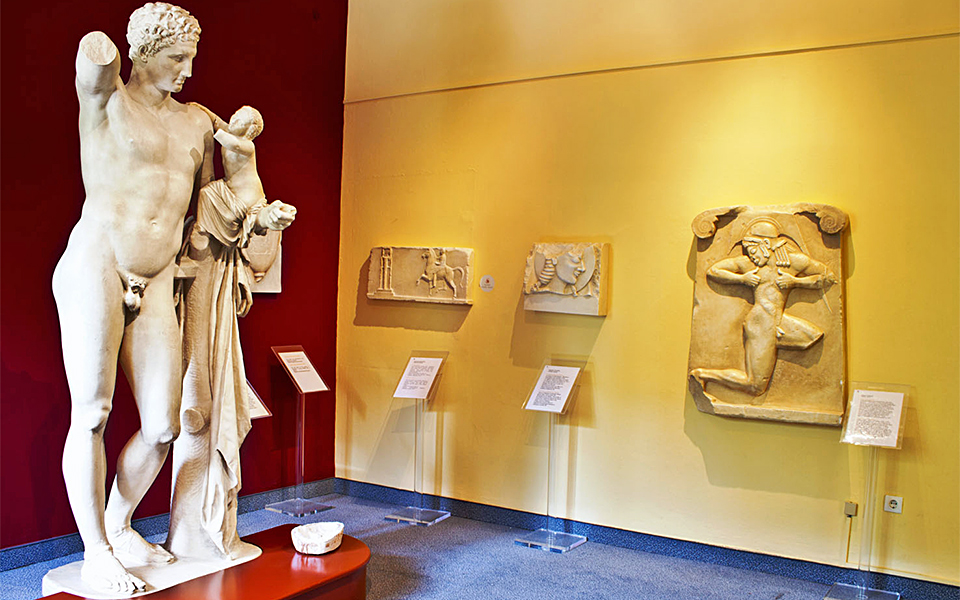My fingertip hesitantly crosses a valley, falls into a small hole, comes out again, and continues smoothly until it reaches what might be a low hill. The guide suggests that I use my other fingers too. Now that’s even better. I sense a belly, a navel, a breast – it’s a woman. I remove my blindfold. Aphrodite of Milos is not looking towards me. As always, she is turned, her face at a three-quarter angle, as if ignoring me, looking at herself in the mirror, as academics say, or holding an apple. It doesn’t really matter. She has not been able to do either of the two since being discovered – dismembered – in 1820.
No, I’m not at the Louvre, where this renowned sculpture of the Hellenistic period is housed, but at the Tactual Museum (Mouseio Afis) in Athens, and the statue I’ve been running my fingers over is an exceptional replica made of plaster. Although it looks very much like marble, the plaster is not cold like marble. Plaster is the material of choice when creating faithful replicas of statues, as marble would need to be carved from scratch.
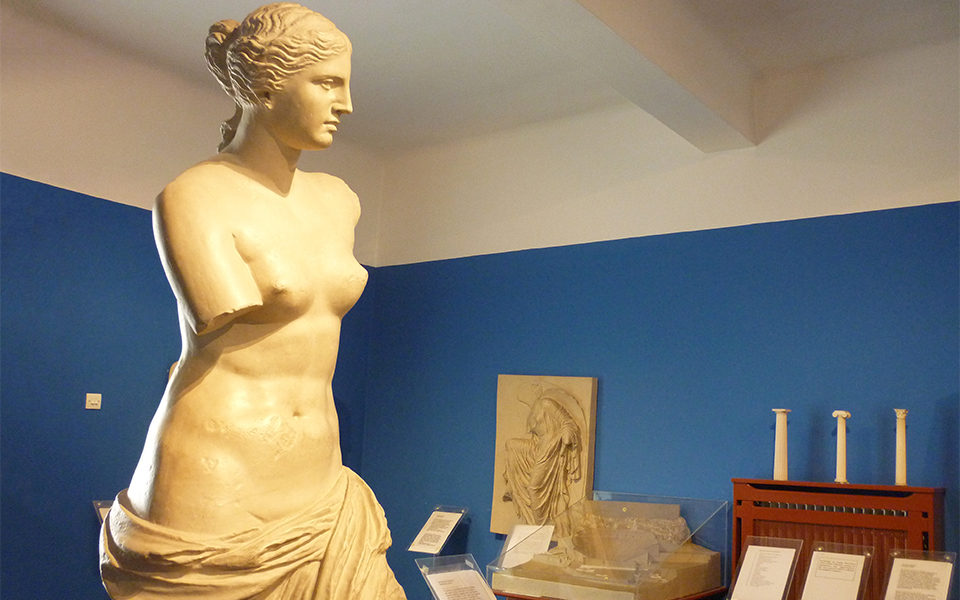
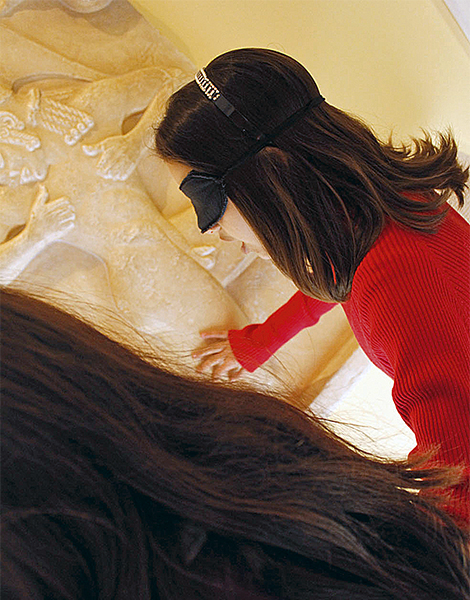
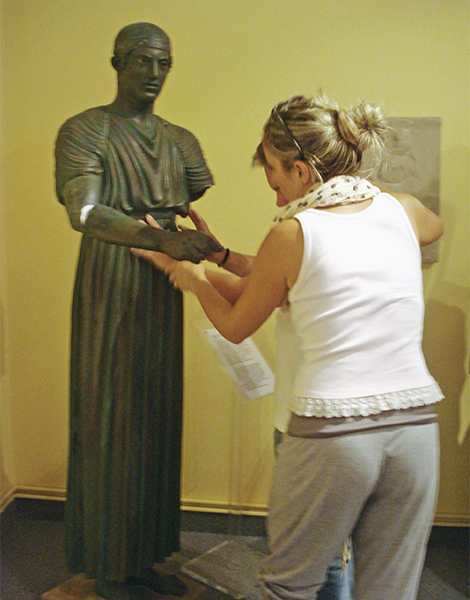
The museum features replicas of the most significant artifacts on show around Greece at institutions such as the National Archaeological Museum, the Acropolis Museum, the Museum of Cycladic Art, as well as the museums at Delphi, Ancient Olympia, and Heraklion. Launched in 1984, it belongs to and is operated by the Lighthouse for the Blind, an admirable non-profit support group for the visually impaired which offers services such as vocational rehabilitation and counseling, as well as creative workshops covering a range of topics including theater, dance and ceramics, all free of charge.
The Tactual Museum in Athens is one of only five such museums operating in the world, as I was informed by Georgia Mila, a Social Welfare Director who has been associated with Lighthouse for the Blind since 2002. The museum is open to the general public, not just visually impaired persons. Museum tours, taking roughly one-and-a-half hours for persons without visual disabilities and three hours for visually impaired visitors, offer a taste of the finest sculptures Greek civilization has to offer – the Hermes of Praxiteles, the Artemision Bronze (Zeus or Poseidon), the Delphi Charioteer, the Volomandra Kouros, the statue of an Archaic sphinx, as well as works of Cycladic art. At the end of a tour, persons without visual impairments are given the opportunity to put on blindfolds and be guided around by another person, then swap roles.
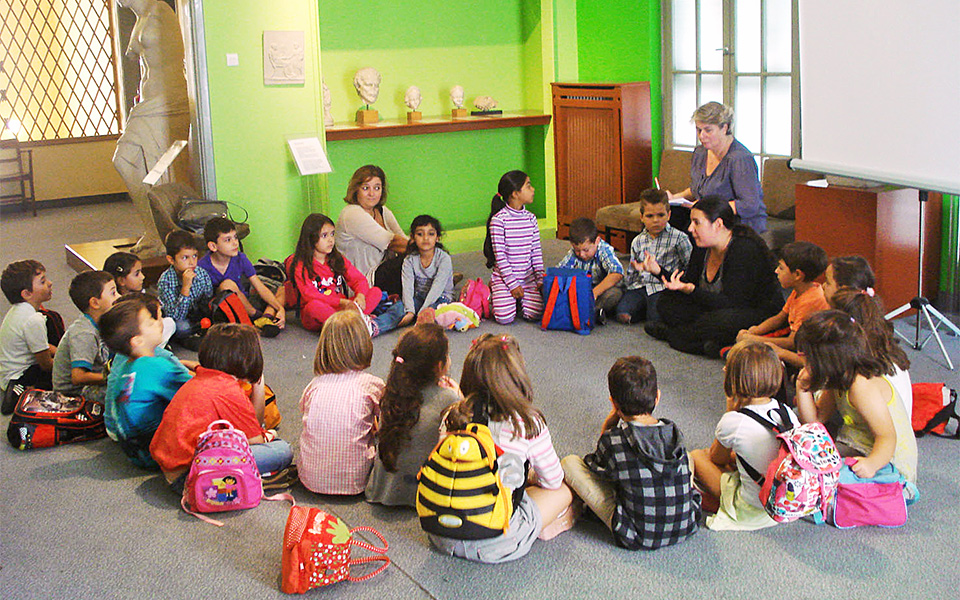
“Through your eyes, you see everything occurring in front of you, in the present. Through knowledge, you may see all that occurred in the past at one end of the world, and all that will occur in the future at the other end,” wrote a group of scouts on a sign they donated to the museum, which now adorns its entrance.
Gogo Roukoutaki, Vice President at Lighthouse for the Blind, was born blind but says the impairment has not proven a hindrance. “Art, especially sculpture, is something that can be equally appreciated by the blind without any problems,” Roukoutaki remarked, before adding: “Even for individuals without visual impairments, I think the experience can be more complete through touch.”
This is true. It’s quite magical to be able to touch (the replicas of) ancient masterpieces normally admired from a distance; to run your fingers over the pleats of their attire; to feel the curves of their breasts and hips; the little streams formed by their abs; the waves created by the curls in their hair; or to try and visualize the missing parts. Could Aphrodite have been holding an apple or a mirror?
INFO | 198 Doiranis St., Kallithea, tel. (+30) 210.9415.222, Mon-Fri: 8.00 – 16.00, Weekends: upon arrangement. Entrance fee €2. Free entrance for handicapped individuals and their escorts. The museum is accessible to people with mobility problems via a ramp next to the main entrance of the building and an elevator for the second floor.

